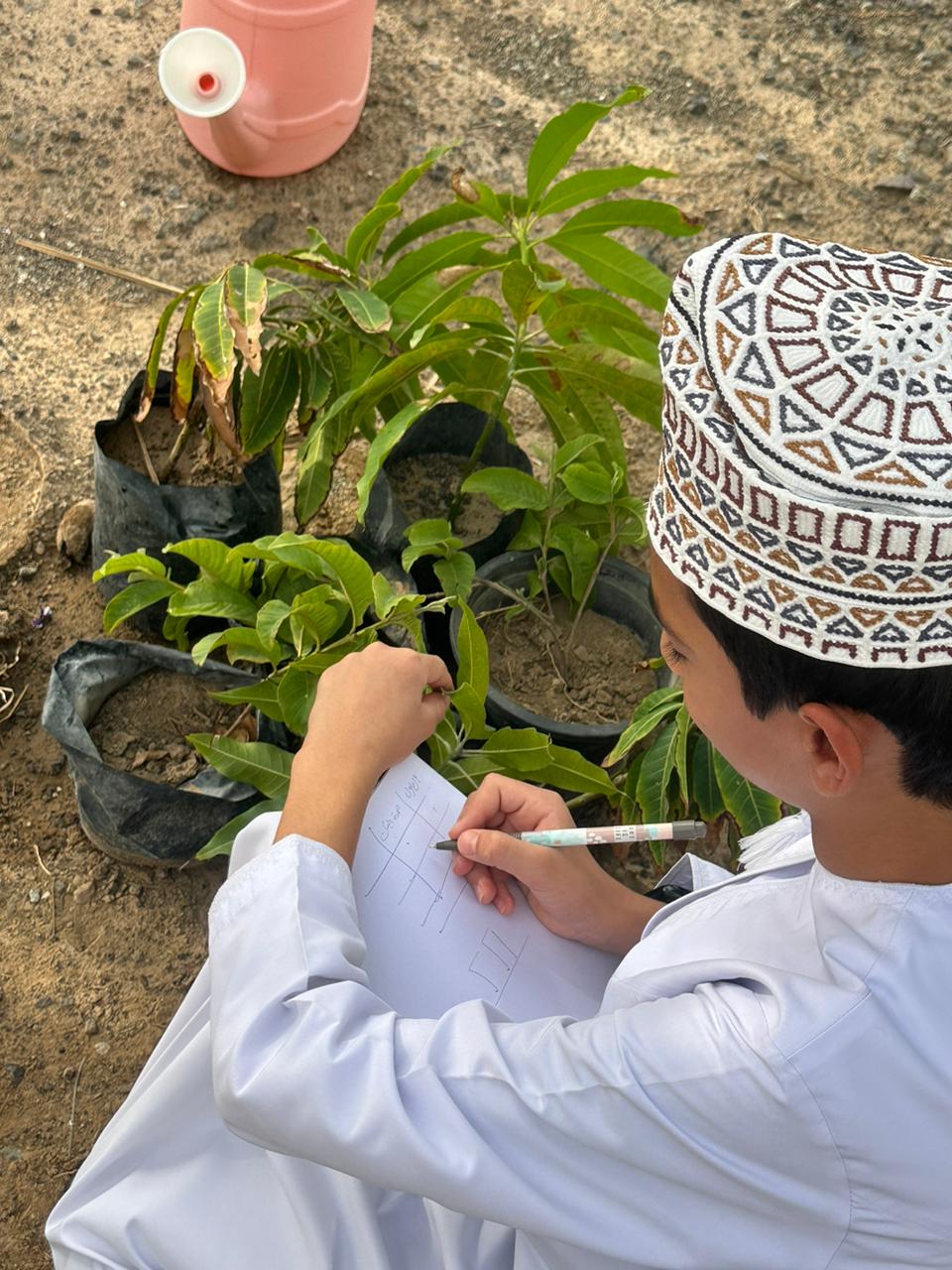Stars and STEM Stories
Omani Students Study the Effects of Soil Salinity on Plant Growth
Soil salinity is one of the most important environmental factors that hinders plant growth, reducing agricultural productivity. It is estimated that approximately 20% of the world's agricultural land is affected by soil salinity, which poses a major challenge to global food security. Students in Oman decided to test this fact and see exactly what happens when soil is too acidic.
Acidic soil can have many affects on plant growth:
- Osmotic pressure: the accumulation of salts in the soil increases osmotic pressure, which hinders the ability of plants to absorb water and nutrients
- Ion poisoning: some salts, such as sodium and chloride, cause toxicity to plants when absorbed in large quantities.
- Nutrient imbalance: Soil salinity leads to a deficiency of some essential nutrients for plants, such as calcium and magnesium.

Symptoms of soil salinity on plants can include plant stunting
and shorter height, yellowing leaves, dry leaves that begin to fall
off, or plant death.
The students investigated methods for treating soil salinity:
- Flood irrigation: this method is used to wash excess salts from the soil
- Drainage: improving soil drainage to prevent salt buildup
- Using organic fertilizers: helps improve soil properties and reduce salt accumulation
- Growing salt-resistant plants: some types of plants are resistant to soil salinity, such as palm trees and pomegranates
In conclusion, soil salinity is a serious problem that affects plant growth and agricultural productivity. There are many ways to treat soil salinity, and the appropriate method must be chosen according to the type of soil and the type of plants grown.
Image courtesy Dr. Ishaq Al-Jabri, GLOBE Oman.





